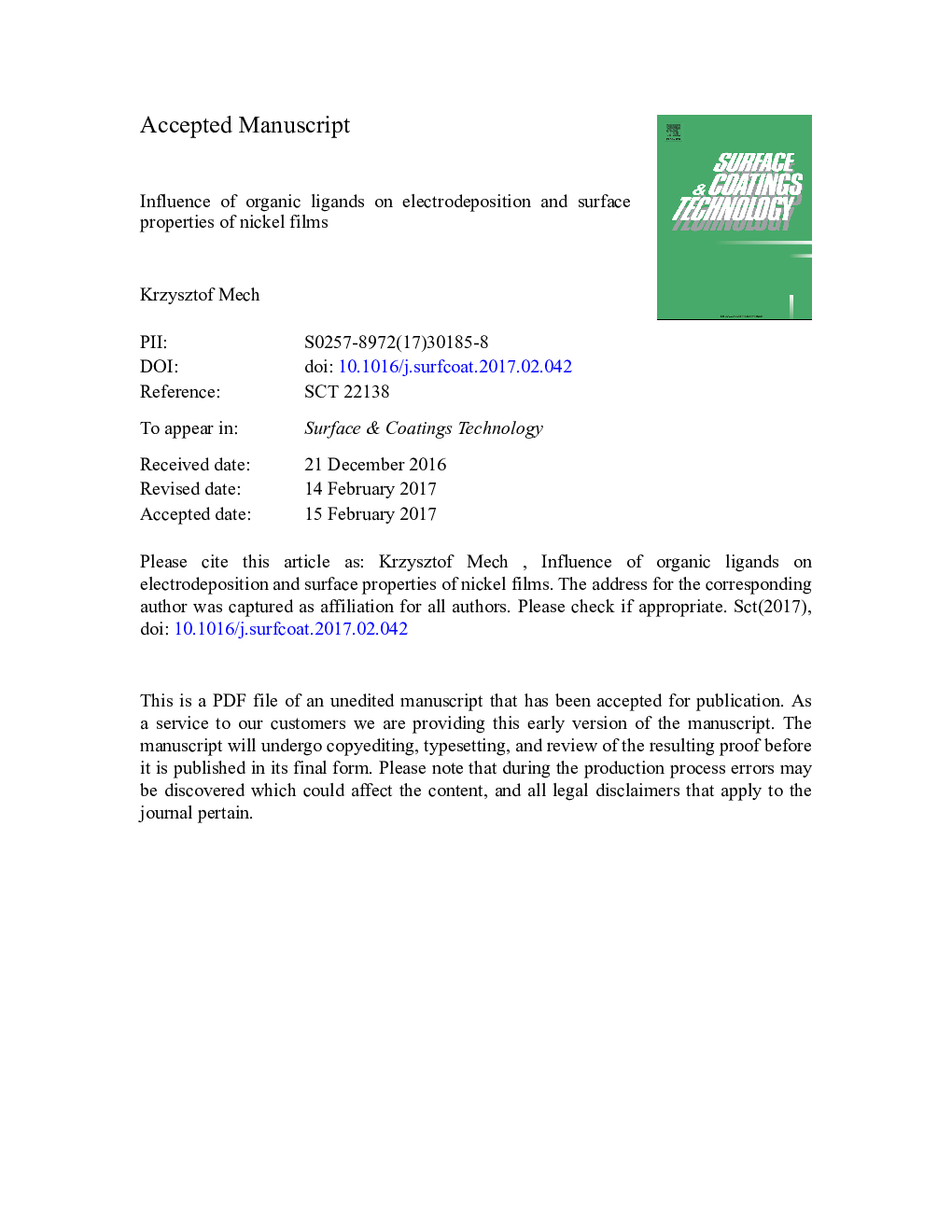| Article ID | Journal | Published Year | Pages | File Type |
|---|---|---|---|---|
| 5464676 | Surface and Coatings Technology | 2017 | 30 Pages |
Abstract
Presented results describe electrochemistry of Ni2+ complexes with glycinate (Glyâ), etylenediamminetetraacetate (EDTA4â), acetate (Acâ), citrate (Cit3â), and formate (HCOOâ) ligands in aqueous environment. Electrochemical tests indicated possibility of electrochemical synthesis of nickel films at potentiostatic conditions in Acâ, HCOOâ, Glyâ and Cit3â based systems. Deposition rate is strongly dependent on applied complexing agent. The highest deposition rate, ca. 1900 ng sâ 1 cmâ 2 (E = â 1.1 V vs. Ag/AgCl) was observed in system containing formate nickel complexes. Registered potentiostatic current - time curves combined with electrochemical quartz crystal microbalance (EQCM) indicated the highest current efficiency for Glyâ based system i.e. 0.75 (954 ng sâ 1 cmâ 2, E = â 1.1 V vs. Ag/AgCl). Voltammograms and XRD patterns indicated that nickel electrodeposition is accompanied by hydrogen absorption. XPS technique indicated the presence of nickel hydroxides on electrodeposited films surface.
Keywords
Related Topics
Physical Sciences and Engineering
Materials Science
Nanotechnology
Authors
Krzysztof Mech,
